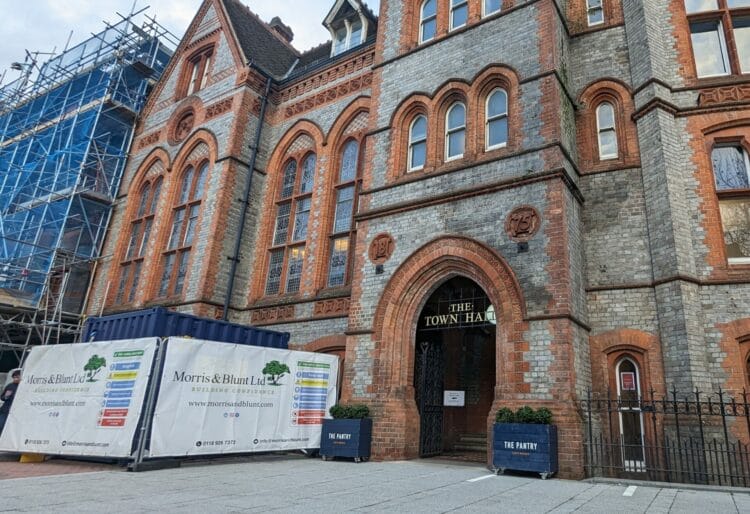THE INQUEST into Ofsted’s role in the death of Caversham headteacher Ruth Perry earlier this year is concluding in Reading today (Thursday, December 7).
It has heard this morning that the schools inspectorate “likely contributed” to her death, after she took her own life in January at the age of 53.
Senior Coroner Heidi Connor said that the inspection into Caversham Primary School, of which Ruth was head teacher, lacked “fairness, respect, and sensitivity” at the conclusion of the hearing.
She also said that inspectors had treated staff rudely, and had been “intimidating.”
The inquiry took place in Reading Town Hall after it was launched in March by MPs concerned about the effect that the education standards organisation, particularly its inspections, had on Ms Perry and its role in her subsequent death.
She had been the head at Caversham Primary School for 13 years before taking her own life back in January, just days before the school was expected to drop from an ‘Outstanding’ rating.
While legal aid was denied for Ms Perry’s family just days before it was due to begin, a crowd-funding campaign launched two weeks ago successfully raised more than £70,000 in just three days, meaning that they had full legal representation at the inquest.
The coroner said at the outset that Ruth’s story “lies at the heart” of the inquiry and that it would seek to find out who Ms Perry was and the circumstances surrounding her death.
On Monday it heard that there was no guidance for inspectors relating to how to deal with distressed teachers.
The only relevant guidance explains that inspectors should “take all reasonable steps to prevent undue anxiety,” but no information about what steps to take should they feel distress.
Ofsted’s national director for education confirmed that there was no specific guidance for inspectors, and added that: “We feel that we train inspectors… in a way that minimises stress and anxiety.”
He was also quizzed by Hugh Southey KC, acting on behalf of Ms Perry’s family, as to whether there was any guidance for inspectors about the impact of inspections on the mental health of staff–he said that we was “not aware” of any such guidance.
The question was also raised at the inquest as to whether there was any system in place by which an inspection could be paused or put on hold for any reason.
Ofsted confirmed at the inquest that inspectors were aware of the ability to put an inspection on hold for “public health” reasons, and cited cases where inspections were paused last year for staff illness and broken water pipes.
The inquest heard that Ms Perry was “extremely distressed” and “upset” in the days surrounding the inspection at Caversham Primary late last year, and that she had said she feared she wouldn’t be able to “show her face” following the inspection.
It also heard from the coroner, Heidi Connor, that “insensitive” comments from Ofsted officials were “inappropriate.”
Mr Derry added that the events surrounding the inspection had left him changed, and that it followed that changes to subsequent inspections would also change.
Attendees then heard from Ofsted’s director of education, Chris Russell, who said that the consequences of inadequate judgements by the inspectorate were the concern of the Department for Education.
Despite this, he also explained that judgements made regarding safeguarding in schools were made with careful consideration, though ‘ineffective’ ratings were “very rare.”
The inquest heard from the acting co-heads at Caversham primary School, both deputies under Ms Perry, and her GP, who agreed that the inspection was linked “directly” to her death.
Professor Julia Waters, Ms Perry’s sister, gave a statement at the conclusion of the hearing.
She said: “Ruth was a head teacher, and also a wife, a mother, a daughter, a sister, and a dear friend to so many people.
“She died 11 months ago tomorrow- her death has left an unfillable hole in all our lives.
“Today, the Coroner’s conclusions validate what our family has known for a long time – that Ruth took her own life as the direct result of the process, outcome, and consequences of an Ofsted inspection of the school she led and loved, Caversham Primary School.
“The inquest into Ruth’s death has shown the brutal inhumanity of the system of Ofsted inspections. Ofsted likes to judge people with single-word labels. We could judge the current Ofsted system with our own labels: callous, perverse, and inhumane.”
She continued: “Ruth’s death, and this inquest, have laid bare the imbalance of power that exists in our education system. Schools and teachers should be accountable to the families and communities they serve.
“Ruth of all people understood this. She was let down by an Ofsted system that was beset with glaring gaps, inconsistencies, and blind spots, yet held the power to destroy her career, and put an end to her school as she knew it.
“There are now urgent lessons that must be learnt from Ruth’s death. Ofsted has made some changes. But these changes do not go anywhere near far enough.
“We have no confidence that Ofsted, under its current leadership and management, is either willing or able to make the widespread, root-and-branch reforms to its system and culture that are so urgently needed.
“The new Chief Inspector of Schools faces a massive challenge to put these failings right.”
She continued: “We would like to thank the Coroner, Mrs Heidi Connor, for her integrity, rigour, and humanity throughout the inquest.
“We hope that the Coroner’s recommendations will be followed in full and will help to prevent future deaths. What happened to Ruth must never be allowed to happen again. We remain determined that there should be radical change, and quickly.
“We would like to thank Ruth’s friends, fellow Reading headteachers, the families of Caversham Primary, and the wider community who have shown incredible love and kindness to us and to each other.
“I should like to thank in particular Lisa Telling, Edmund Barnett-Ward for their unstinting support, and Pete Castle from the Reading University Press Office for his expert guidance.
“This inquest has also exposed another systemic imbalance of power – that is, the injustice of a Legal Aid system which refuses to support a bereaved family, even when facing three public bodies whose substantial legal costs are paid for by the taxpayer.
“I should like to thank the thousands of kind and generous members of the public who responded to our crowdfunding campaign, after we learnt, just days before the start of the inquest, that our application for Legal Aid had been refused.”
Speaking on the lack of provision of legal aid in the inquest, she said: “We could not have done this without legal representation, and I hope lessons can be learnt about the way the Legal Aid system should change to support bereaved families facing public bodies.”
“Finally – one of the terrible features of the school inspection system is the public focus on a named individual, the headteacher, and the potentially harmful consequences of being publicly named and shamed.”
She continued: “We are very grateful for the responsible way the media have reported Ruth’s death and the inquest.
“My family are concerned however about the sometimes very pointed, personalised focus on other individuals – including the inspectors who carried out the Ofsted inspection at Caversham Primary.
“Our concern has never been with individuals, but with Ofsted’s inhumane system.
“Please be conscious of this in your reporting, and in discussions on social media. As fellow human beings, we all owe each other a duty of care.
“As Ruth used to say, ‘There is nothing more important in life than kindness. Be kind always.’
Brighter Futures for Children and Reading Borough Council have released a joint statement following the hearing, which reads:
“Today’s conclusion marks the culmination of an incredibly distressing and difficult year for everybody associated with Caversham Primary and the wider Reading school community.
“The thoughts of everybody at Brighter Futures for Children and Reading Council continue to be with Ruth’s family, her close friends, and her school colleagues.
“Caversham Primary was always a huge part of Ruth’s life. She would have looked on with pride at the determination shown by school staff and governors to shield children from the trauma of the past year, because the wellbeing of her pupils was always at the top of Ruth’s list of priorities.
“Those who worked with Ruth knew her as an exceptional headteacher.
“She led Caversham Primary to be one of the most highly regarded primary schools in Reading and she was widely respected across Reading’s school community by her peers.”
It continues: “There is no doubt that Ruth’s close connection to the local community heightened her sense of responsibility and the evidence provided to the Inquest showed just how heavily this weighed on her following the Ofsted inspection.
“Witness statements provided to the Inquest illustrate the breadth of support and reassurance offered to Ruth by Brighter Futures for Children, her leadership team and Governors before, during and after the inspection – a fact acknowledged by Ruth’s school colleagues as part of their own evidence, and by the Coroner in her findings.
“That same evidence lays bare the level of stress and anxiety felt by Ruth and her colleagues during and after the Ofsted inspection last November, a pressure which is all too familiar to headteachers and school staff across the country, as heard during the inquest.”
It continues: “We fully acknowledge and accept the Coroner’s recommendations.
“We have taken a number of steps to better understand and respond to what impacts on headteachers’ wellbeing and to identify wellbeing concerns from the start of an Ofsted inspection. We intend to build on this work by commissioning a local Independent Learning Review.
“The need for education and school leaders to support each other is now stronger than ever. Working closely with local schools, we have also convened an Education Partnership Board to help develop a shared sense of ownership for outcomes and standards across all of Reading’s schools.”
It concluded: “The loss of Ruth has sparked a national debate around the burdens and external pressures headteachers face.
“It must lead to learning – for all organisations involved – and positive changes so that head teachers are valued for the vital work they do. Their work must be supported by an inspection framework which delivers proportionate outcomes for school leaders, the workforce and children.
“We urge the DfE, who set that framework, to come together with education leaders and Ofsted to address the issues created by the current model, as highlighted in the Coroner’s findings.”























